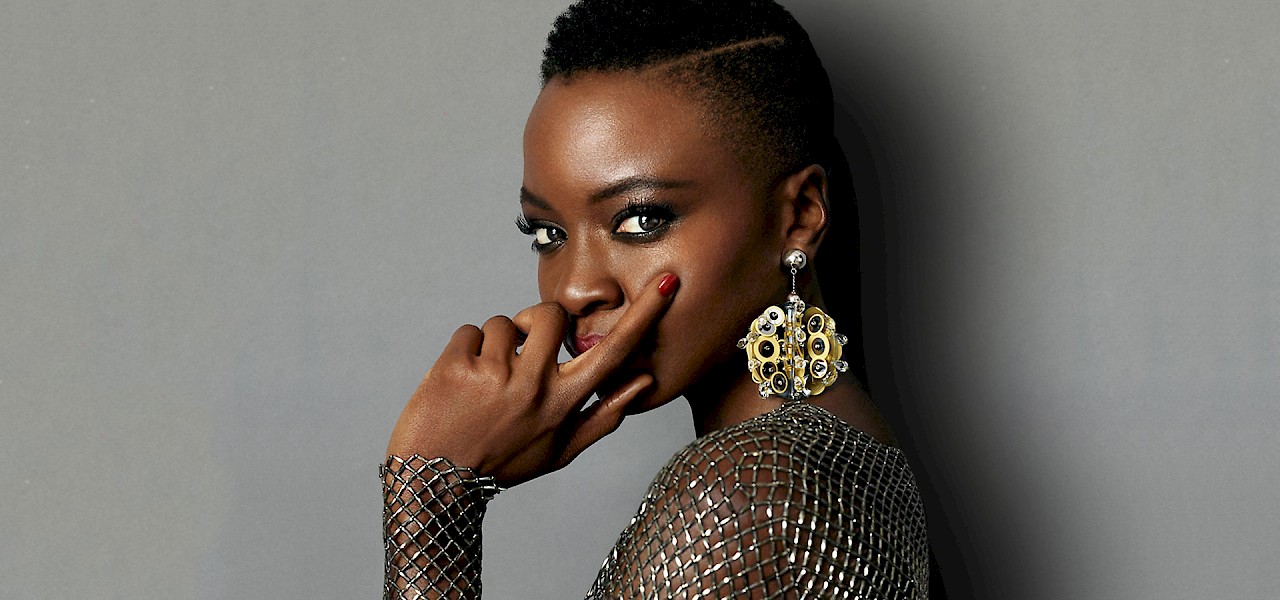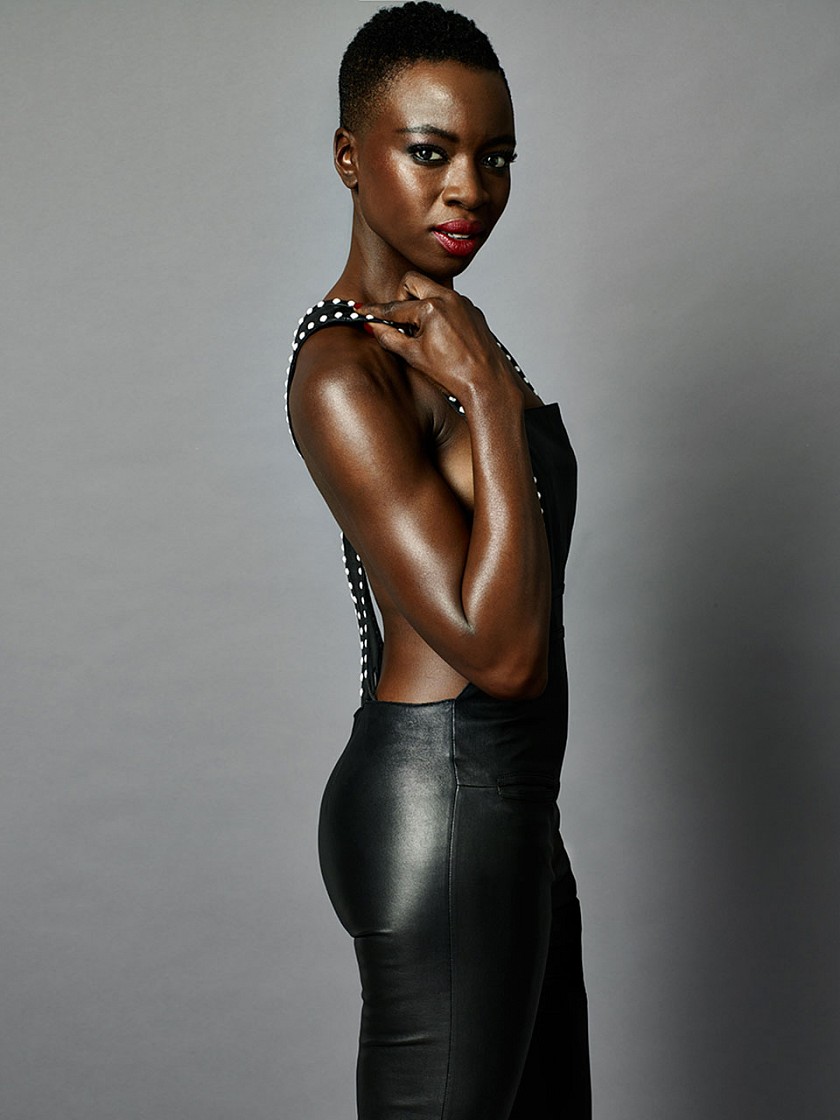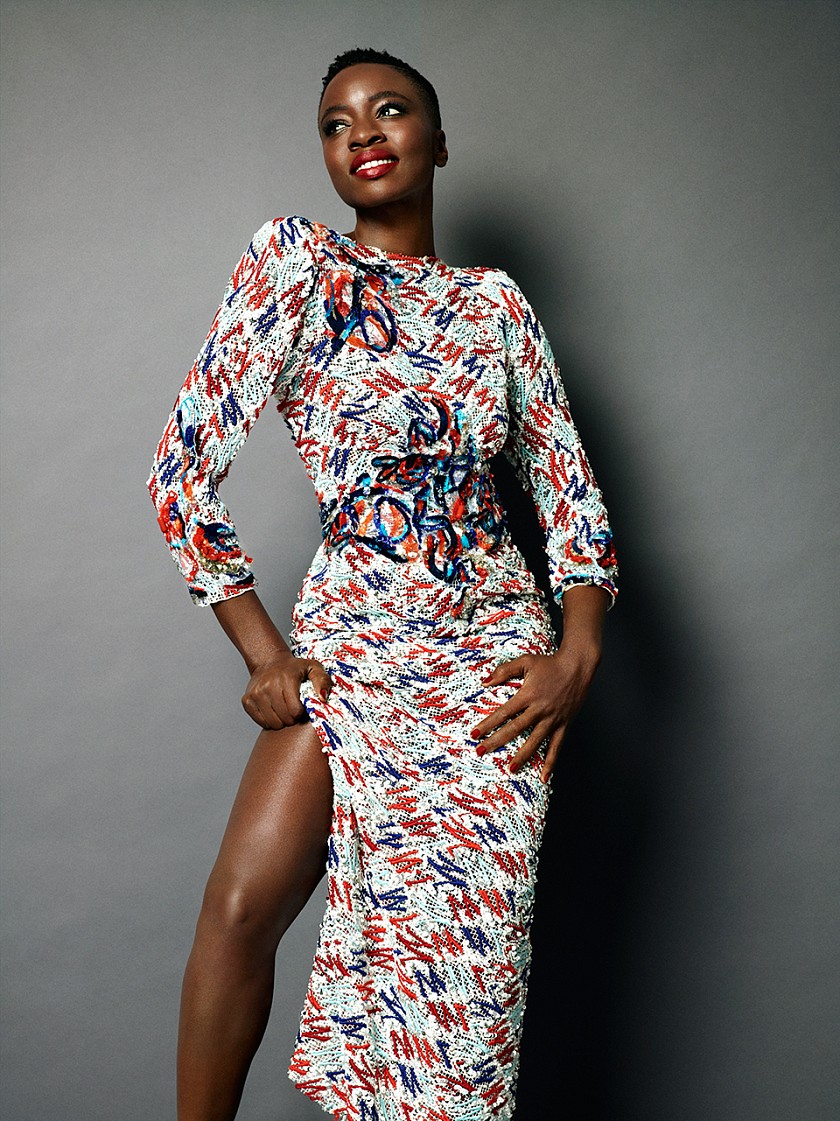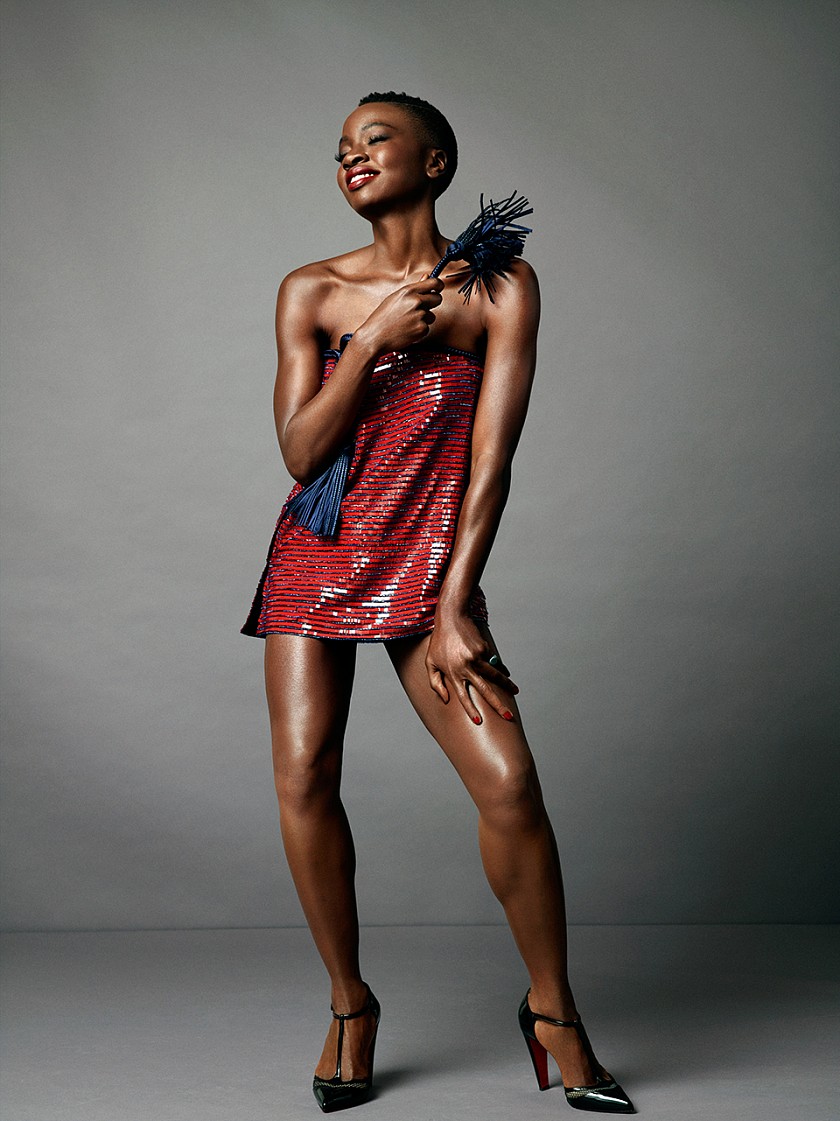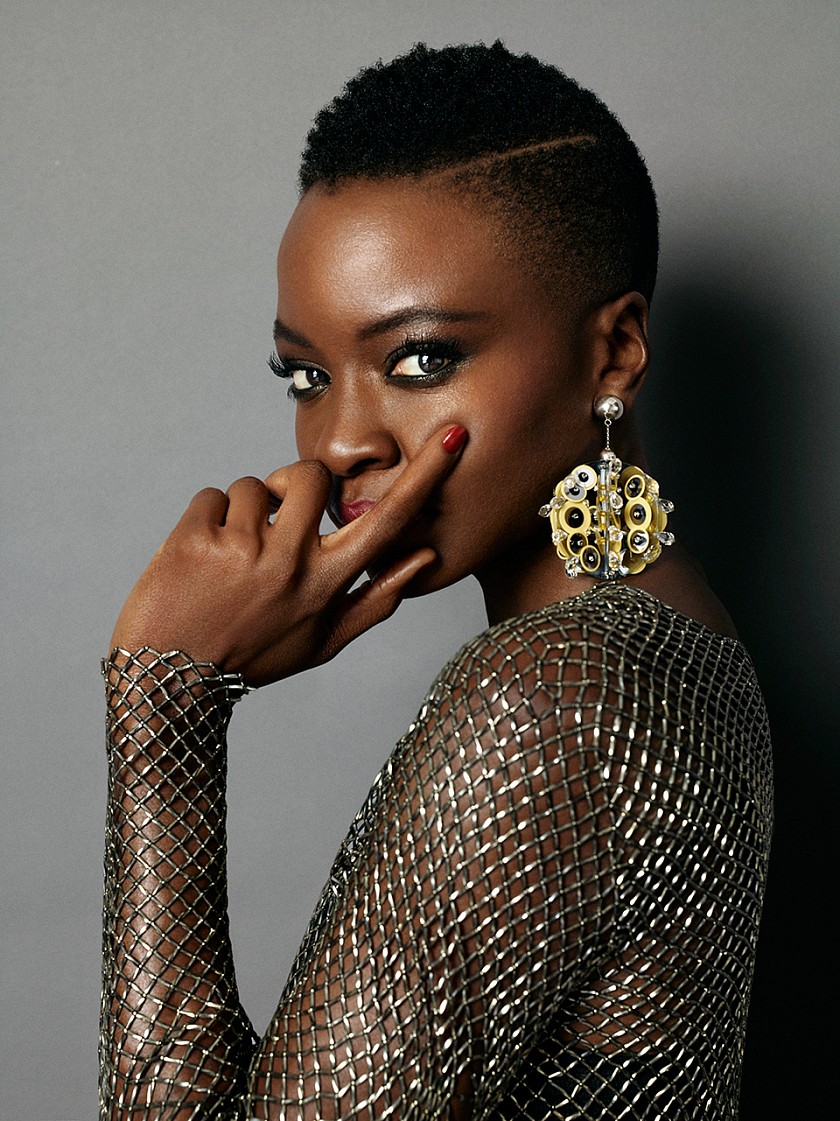Interview
There’s No Denying Danai
ECLIPSED playwright and The Walking Dead star Danai Gurira talks to the Curran's editor-in-chief, Kevin Sessums, about Shakespeare, Zimbabwe and that place where her artistic juice resides.
THE CURRAN[T]: We are looking forward to welcoming you to San Francisco. Have you been here before?
Danai Gurira: I’ve been there once or twice. I think it’s a fantastic city. Great food. But I haven’t gone to any theatre there.
Will ECLIPSED be your first theatrical experience here?
It might just be.
Looking at the arc of your career as a playwright - from IN THE CONTINUUM, which was about women living with HIV; to FAMILIAR which was about the immigrant experience, an experience you also bore witness to as an actress in the film Mother of George; to ECLIPSED about the experience of women and girls in war-torn Liberia - one is led to believe that you look upon your mission as a playwright to be part of a public conversation about issues concerning us as citizens and, moreover, to carry forth a political message.
I think I have more of a mission to tell stories of my people and the stories that I feel are often untold. And I guess that often falls into the realm that one could term political. But for me there often isn’t a difference between the political and the personal. For example, the women in IN THE CONTINUUM are not trying to be political. They are trying to get through their lives. They are aspiring to fulfill their dreams. We then watch it and give it that term. The people in FAMILIAR are definitely not trying to be political. They are just trying to find their identity and express it and make their choices as to what is the best course of action for their lives and the lives of their families. And as for the women in ECLIPSED, I wanted to write a story about the women who deal with the treacheries and the trauma of war and put them in the front and center for us to really hear their voices and see their experiences so that we realize that there really is no difference between us and them. I think in terms of who we are as human beings. Honestly, the word “political” to me is for others to apply. To me, it is about storytelling and giving a story and a voice to people who often don’t get that chance, who don’t get that space, who don’t get that attention. I guess in that realm it does get political.
“That is the beauty of people who are true storytellers - they think beyond color.”
You even wrote your honors papers at Macalester College on the neglect of black women in psychology. You have always been drawn to speaking out for the invisible in society. Your work seems to be saying, “No. We are here.” It seems to about bearing witness to those who are not witnessed. Or is that too highfalutin of us to put it in those terms?
No. Absolutely. Necessity became the mother of invention because I couldn’t find stories of people who looked like me and the complexities of their lives which I was reading in a bunch of other dramatic narratives, dramatic narratives that I had to study and I had to embody. But I wasn’t actually coming across dramatic narratives that spoke to who I am and who people who look like me are. It became a bit of an outrage that it was so difficult to source those stories or to have them accessible to me in the way that so many others were. So it became something I decided to address in a very practical way. A very literal way.
“You don’t want to go for what’s simple. You want to leave an audience righteously befuddled. As a writer, you have to step into those things that are very, very uncomfortable. That’s when I always know I’m on the right track if I am stepping into a place of deep discomfort which is often a place that is riddled with truth.”
One of the parts you are known for is Isabella in MEASURE FOR MEASURE in a Shakespeare in the Park production at the Delacorte Theatre in New York. Harold Bloom called MEASURE FOR MEASURE “a masterpiece of nihilism” which ECLIPSED is too in its way. Isabella is a Catholic novice who must choose between her own chastity and her “sinful” brother’s life. Some might argue that this is not necessarily a part for an African American woman. What drew you to that role? Why did you say yes to it? There is a radiant - well, really self-righteous - grace about Isabella. Charles Isherwood in his review in The New York Times referred to your “thrilling intensity” in the part and wrote that you proved that “holiness does indeed have a weirdly bewitching appeal.”
Well, I don’t know what it means to say it’s not a part for an African American woman. I see myself as a storyteller so I am not bound by this-is-supposed-to-be-played-by-a-Caucasian. I was taught Shakespeare from the age of fourteen in Zimbabwe. Shakespeare has been a part of my life longer than most other writers. My affinity for the classics has been around for a really long time. I feel as much ownership of the classics as anybody. I was taught early on that the classics were deemed highly worthy of my attention. I couldn’t even get the degree I got without knowing them well. For me, I feel as much total joint ownership of the classics as anybody. So I feel just as qualified to play any role in the Shakespearean canon as my Caucasian counterparts. That is the beauty, I think, of people who are true storytellers. They think beyond color in a lot of ways - especially when it come to those types of things that are always going to have space and place on our stages. Shakespeare will always have that. So, please, let us not only make it for Caucasians. Please let us make it for everybody-included.
The natural affinity I have for the classics definitely manifested in the fact that I was cast in that part. They had been trying to find their Isabella for a while, as far as I knew. They came at me three times. I said no to auditioning twice. Then they came back to me a third time.
So why did you say yes that third time? What is it about Isabella that made you finally say yes to her?
Firstly, when someone comes to me three times then that’s when I say, okay, I have to pay attention. Maybe they’re feeling something that I have to pay attention to. Secondly, many people in my lifetime had told me that one day I should play Isabella. But I had not even read that particular play until I had been cast. When I did study the role for the audition I did get her. I understood her soul. I understood her convictions and her compassion and her complexity. And I understood how people tend to see Isabella and I said, that’s not who she is. I felt that it was very much something I could embody. I knew I could embody it with passion. I had a deep personal connection to her. I walked out on that stage determined to not let the audience judge her as easily as they usually do. I made sure they saw how complex this is from her perspective. Once I studied her and did the work, it did feel like a very right fit. I love the classics and I will continue to do the classics for the rest of my life.
Good. We as your audience appreciate that. Thank you.
Well, it is not something I would ever neglect based on something like my culture. It is my culture. Shakespeare is a part of my culture.
Angelo - to whom Isabella pleads for her brother’s life and who, in turn, is so enamored of her that he gives her that ultimatum about giving in to his desire for her to save her brother - asks himself, “Dost thou desire her foully for those things that make her good?” There is a kind of sacredness - both carnal and spiritual - in the incongruity of things, in that poetic inflection point where the thing becomes its opposite. Is the incongruous what interests you as an artist? ECLIPSED is filled with those poetic inflection points.
Well, that’s where the juice is. That’s where the dramatic juice is. You don’t want to go for what’s simple or what’s not complex. You want to leave an audience righteously befuddled. You want to leave them going, “Dang that makes sense and it doesn’t make sense.” Because that’s life. So you have to step into the things that clash and step into the things that seem very incongruent but that are truly human. As a writer, you have to step into those things that are very, very uncomfortable. That’s when I always know I’m on the right track if I am stepping into a place of deep discomfort which is often a place that is riddled with truth.
You just played Tupac’s mother, Afeni Shakur, in the biopic All Eyez on Me - to bring this back to politics and art once more. She was a political activist who belonged to the Black Panthers and was arrested and accused of planning bombings in New York but, while pregnant with him, was acquitted.
The trailer is out in theatres now. I think it is being released in September.
Is it different to step into a role based on a real-life person as opposed to stepping into the fictional role Michonne, the one you play on The Walking Dead?
Yes. It’s a whole different thing and it was deeply daunting. You step into a role like that with a great amount of respect and care. You try your best to give it your all and to play it with respect and care and … well .. courage really. That was really the journey for me. I learned a lot and I was transformed by what I learned and the spirt and the core of who this woman was. Yeah: it was a very transformative experience for me.
You talked about reading Shakespeare growing up in Zimbabwe. You’ve started your own arts eduction foundation there called Almasi.
It’s in Zimbabwe and in the United States. It’s a cultural, collaborative, artistic organization. Recently I had an American in Zimbabwe teaching arts administration and right now I have a Zimbabwean in America interning at The Public Theater in New York. We do those kinds of things and we also facilitate students in Zimbabwe to get their higher education in the arts. One of our fellows is getting a Masters of Fine Arts right now at the Dell'Arte International School of Physical Theatre in California near San Francisco. We also do a lot of arts education and artistic opportunity work in Zimbabwe where we have a staff on the ground and do stage readings and workshops quite constantly. We bring Americans there for playwrights festivals. We are just trying to build up arts education and artistic opportunities for African artists so that their voices do become more and more global so that you get to know many Africans who have created narratives.
Do you get homesick for Zimbabwe?
Sure. I go back once a year. I feel deeply connected to it. I get there and I breathe in the air and I’m home. It’s home. There’s that connection that you don’t even try to explain or understand.
The impulse to act and the impulse to write - is that the same impulse? And can you do one while you’re doing the other?
What do you mean by do one while I’m doing the other?
When you’re in the throes of being Isabella in MEASURE FOR MEASURE or you’re doing your television series, there is an artistic exhaustion that comes from that. So can you carve out time to do your writing as well?
It depends. There are times when things need to be carved out in accordance to what is in front of me to get done. There are times that you do have to create and carve out time. Sometimes you can’t do both at the same time. If I’m shooting the show and I’m deep in the story of it, I’m not going to break out of that and write something unless it is something that is really fueled by realizing something as I’ve been creating it on the show. You know what I mean? Unless they are fueling each other, I’m going to let them function separately. But it’s not that hard to carve out time. But it is a challenge. It is a balancing act. And if I feel as if I am giving each my all, they do tend to feed each other because they are both from the same source. It is the source of being a creator and finding artistic life in my work. That’s very nourishing from whichever side it comes. It’s all storytelling and that nurtures me as an artist.
